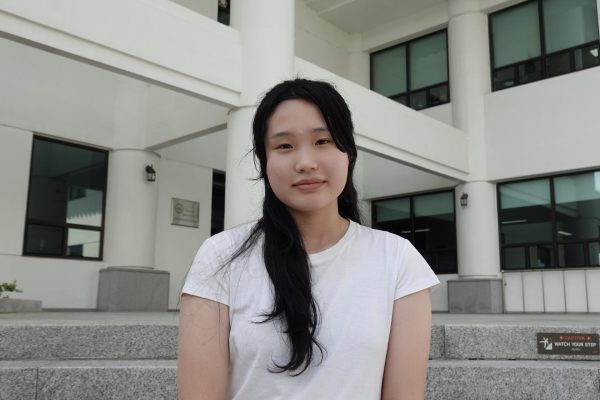For the first time in four years, SIS hosted the varsity girls’ volleyball AISA tournament on Oct. 10. Unlike previous years, Brandon Fraseur, the head of the athletics department, issued a requirement that student-athletes host at least two overseas competitors from Taiwan, Japan, or Jeju as homestays.
In previous years, home staying was generally avoided by student-athletes, especially because the homestays would stay for three nights and the host was required to provide meals, snacks, bedding, and laundry. Not only that, if student-athletes were to host homestays, the process of acting as a tour guide for their international visitors while taking their guests back before the 10 p.m. curfew was expected. This served as another small responsibility students had to bear, even during the late hours of the tournament, where official games would end at around 6-8 p.m.
This year, however, due to the newly implemented AISA mandate, all overseas guests were able to find a homestay for the duration of the tournament, and unlike last year’s girls’ soccer AISA, the response to the homestay was generally positive.
“I was kind of nervous to homestay this year’s AISA, especially because I was not familiar with the procedures,” Lauren Lee (9), varsity girls volleyball player, said. “But genuinely it was not as nerve-wracking as I thought it would be—my guests were well-behaved and it overall shifted the competitive atmosphere to a more friendly one.”
In comparison to last year’s varsity soccer girls’ AISA tournament, when the homestay requirement was not as prominently issued before, the volleyball team interpreted the homestay mandate in a more serious manner.
“I think it’s true to say that even though last year’s soccer girls had 10 more homestays that they had to provide for than this year’s volleyball team, nearly 100 percent of the volleyball team participated and contributed to this year’s homestays,” Mr. Fraseur, Head of the Athletics Department, said. “The AISA homestay mandate was always a requirement, but the inclusion of students that gathered and participated this year demonstrates the hospitality of student-athletes.”
At the beginning of the season, many student-athletes got the impression that the mandatory homestay requirement was pressuring, threatening the eligibility of their attendance in the AISA tournament. However, upon further inspection, the homestay tradition was always a mandatory requirement for all hosting student-athletes. The reason why this mandate suddenly seemed more pressing than in previous years was that the athletics departments of the international schools attending never wanted to make such mandatory requirements seem overbearing, but upon realizing the recent AISA homestay shortage issue, more stringent ways of issuing this mandate became necessary. This year, however, began the comeback of AISA homestays, even from our non-athlete students.
“I think the idea of homestay is a wonderful concept especially because it’s an inclusion of multiple other cultures and personalities,” Eunbin Macklin, (12) volleyball AISA homestay host, said. “I personally had a great time hosting my guests from Osaka, I think everyone should take into consideration the experience homestays can offer, especially because it can open new relationships.”
Over the years, student-athletes have forgotten the purpose of AISA homestays; instead, more aversion has occurred due to the seemingly tedious procedures that follow being a homestay host of at least two overseas students.
First seen as a dull requirement, the AISA homestay mandate paved the way toward a more welcoming event, a complete contrast to the experience that most student-athletes were familiar with. Although there was some great disapproval of the pressure that student-athletes received from AISA homestays, ultimately, the consensus of the student body was that the event was enjoyable and worth the high school varsity experience.


